After spending almost two weeks in Tanzania it was time to cross the border and enter Malawi, the seventh country we visited on our trip. We arrived at our lovely campground in Chitimba on the shore of Lake Malawi, which is a massive body of water with around 11,400 square-miles of surface area. With a beautiful sandy beach and crashing waves it honestly looked more like the ocean than a lake. The campground had a nice bar and restaurant with reliable WiFi, which has been a rarity lately.
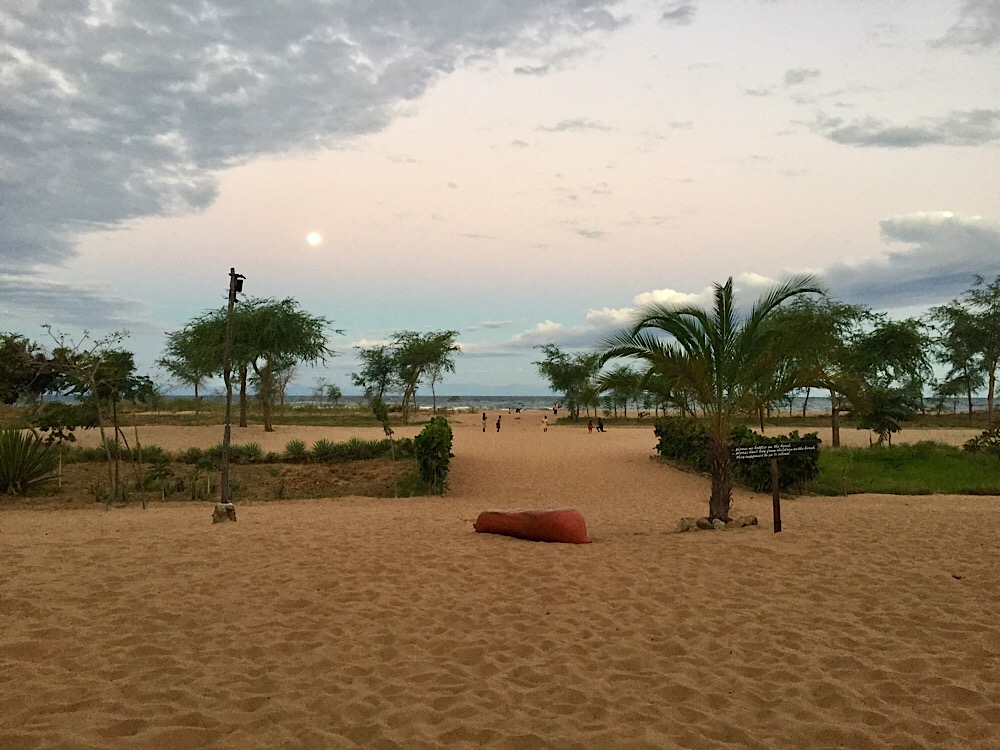
After leaving Chitimba, we made a stop in the city of Mzuzu and our Intrepid trip leader gave us money to buy some food for our meals that week in the local outdoor market. We were tasked with negotiating with the vendors to buy everything we needed within the budget they gave us. The market was basically a huge farmers market and we bought some lovely looking carrots, eggplant, cabbage, and zucchini and enjoyed chatting with local people along the way. Most people understood English but we tried to learn some basic phrases in the local language of Chichewa and the market vendors were mostly happy to help teach us.
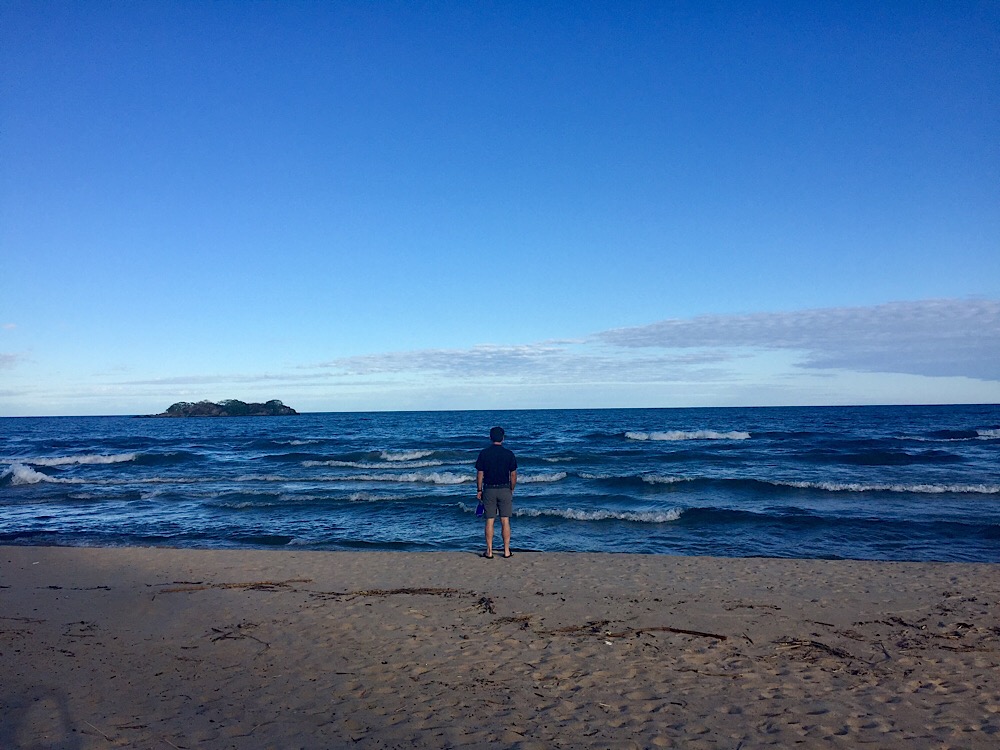
We arrived at Kande Beach Resort in Nkhata Bay on Lake Malawi and after setting up the tent, we attempted to take a walk on the lake’s shore, which had a lovely beach. We were approached by so many local guys aggressively trying to sell their artwork and crafts that we turned back after not too long. At many of the towns and villages we visit there are arts and crafts for sale and we try to buy something small here and there. We have to spend money locally on food and experiences more than souvenirs because we literally have no where to store anything since we are both traveling with only carry-on size bags and still have many flights ahead of us. It is hard to tell so many people “no thank you” when they seem to rely so much on selling things to tourists. There is a high poverty rate in Malawi and the vendors there seemed almost desperate to sell things, making it difficult not to buy something from everyone.
We had the campground to ourselves for the first night at Kande Beach and were treated to a gorgeous moonrise over the water. The tents and sleeping mattresses we have are quite comfortable for sleeping but you just never know what you will have to deal with noise-wise sleeping outside. I have been kept awake by music, snoring, dogs barking, chickens, and wild animal noises at different times throughout the trip.
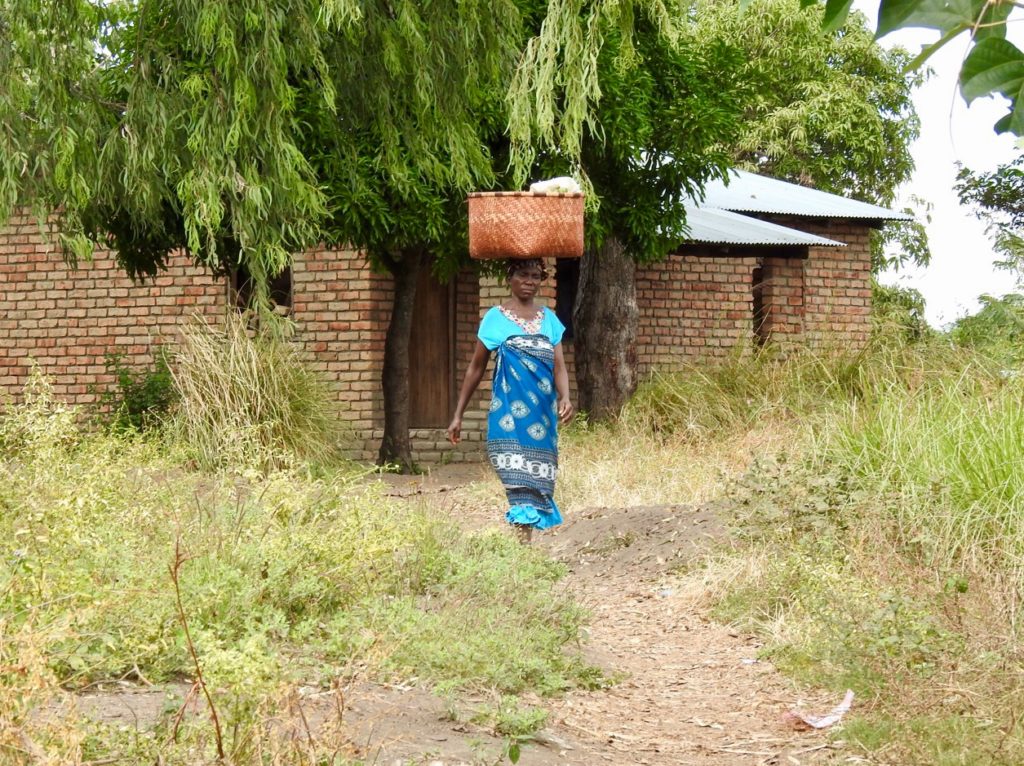
While at Lake Malawi we took a village walk with a local gentleman named William who gave us an overview of daily life in his village, including their healthcare, housing, schooling, cooking, farming, and family life. They grow a great deal of cassava, which is the staple food of their diet. Pregnant women receive excellent prenatal care here, which was wonderful to learn, and they have a very low rate of childbirth deaths (almost none). Primary school is free for children but they must have an official school uniform, which costs $15 and is the responsibility of the parents to purchase along with school supplies. The entire village shares one well, which is their source for all their clean water. It is the women’s job to fetch the water from the well but they let Rob give pumping water from their well a try.
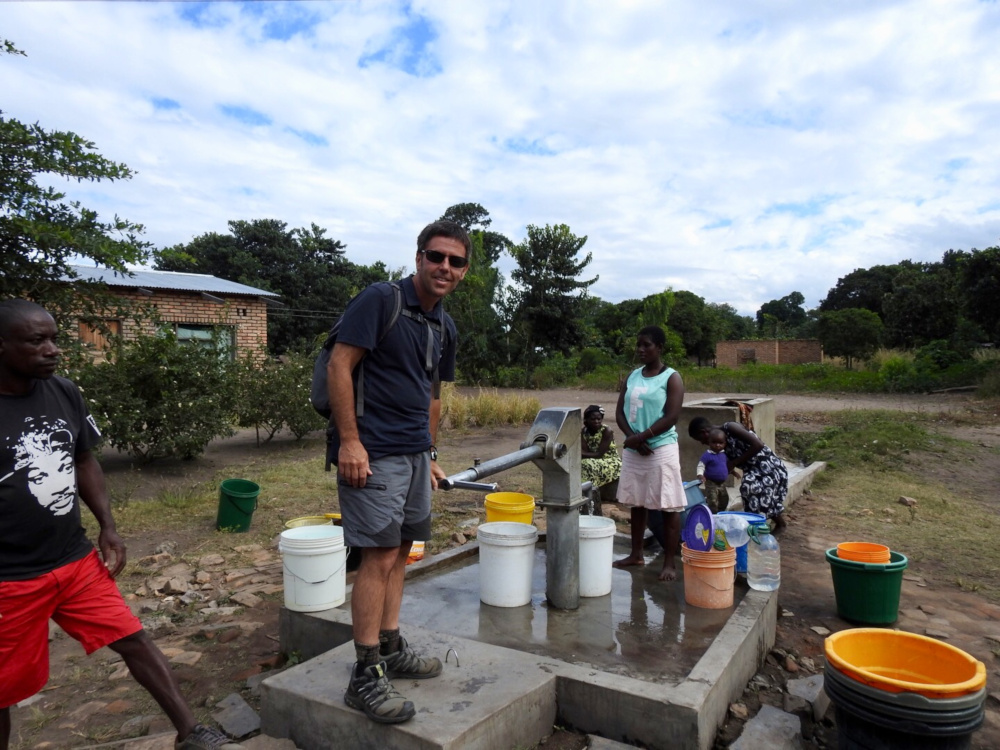
Four of us from our tour group joined two local guides for a bike riding / hiking excursion from Kande Beach. I am pretty sure the bikes we were given to ride for this activity were just local people’s bikes from the village as they were a mishmash of styles in various states of disrepair. I ended up with a mountain bike that was comfortable enough but I could not change the gears.
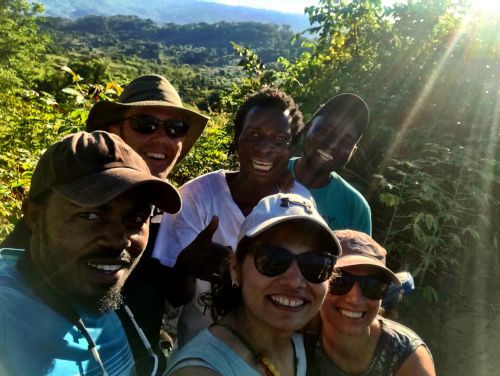
We started the ride in pretty deep sand and then rode on mostly dirt paths for around six miles through the local village and to the base of a mountain. Plenty of local people seemed to be walking or biking as their local transportation mode and many people waved at us along the way. There were some substantial hills that were tough for me (especially with only one gear) and I was feeling that I was a bit out of shape after six weeks of traveling and so many hours spent sitting around in the overland truck and on game drives. When we reached the mountain base my heart rate was up more than it had been in a while and my legs were shaky but it felt great to have some much needed exercise. We then hiked straight up the mountain to a scenic view point. After a rest at the top, we hiked back down and pedaled back to our campsite.
As we drove away from the campsite in the morning in the overland truck, we passed a school and a large group of young school children ran toward the truck enthusiastically waving and giving us the thumbs up sign. The people in Malawi, especially the children, have been overwhelmingly warm and friendly.
On day 32 of our overland tour we departed Malawi and crossed the border into Chipata, Zambia. Croc Valley was the safari camp we called home for a few days on the Luangwa River in Zambia. The river is full of hippos and crocodiles and you can sit at Croc Valley’s open air bar and restaurant along the river bank and watch them anytime. Hippos are nocturnal herbivores and they come out of the river to graze on land at night. They make loud honking noises so you will usually know when they are nearby.
We slept with our tent window flaps open so we could see out at night. While sleeping we heard the hippo honking noises close by. We sat up and looked outside, careful not to make much noise in our tent. We could make out the outline of a large hippo about ten feet from our tent. It was so close we could clearly hear it munching on the grass. It continued to graze for a bit and then went along its way.
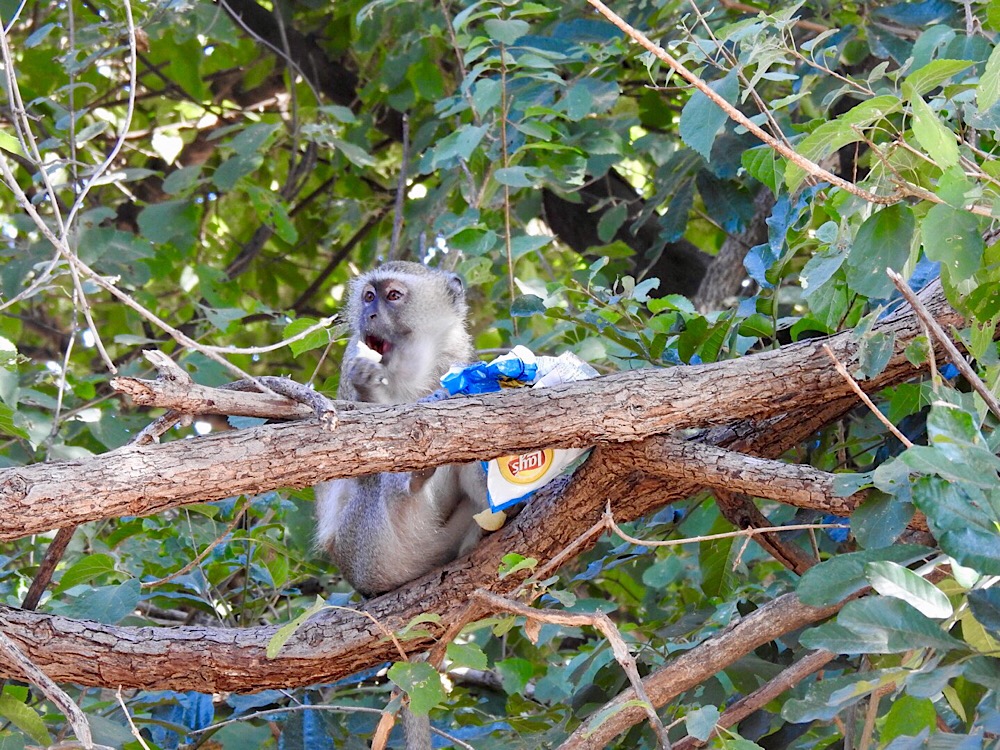
There were also mischievous monkeys and baboons hanging around the campsite. The monkeys found their way onto our truck one morning and stole some snacks that were not locked up. Some baboons made a big mess by rummaging through our trash bin. In the mornings we also saw elephants gracefully walking across the river, a beautiful sight. Waking up to sounds of elephants, monkeys, and hippos was a pretty unique camping experience.
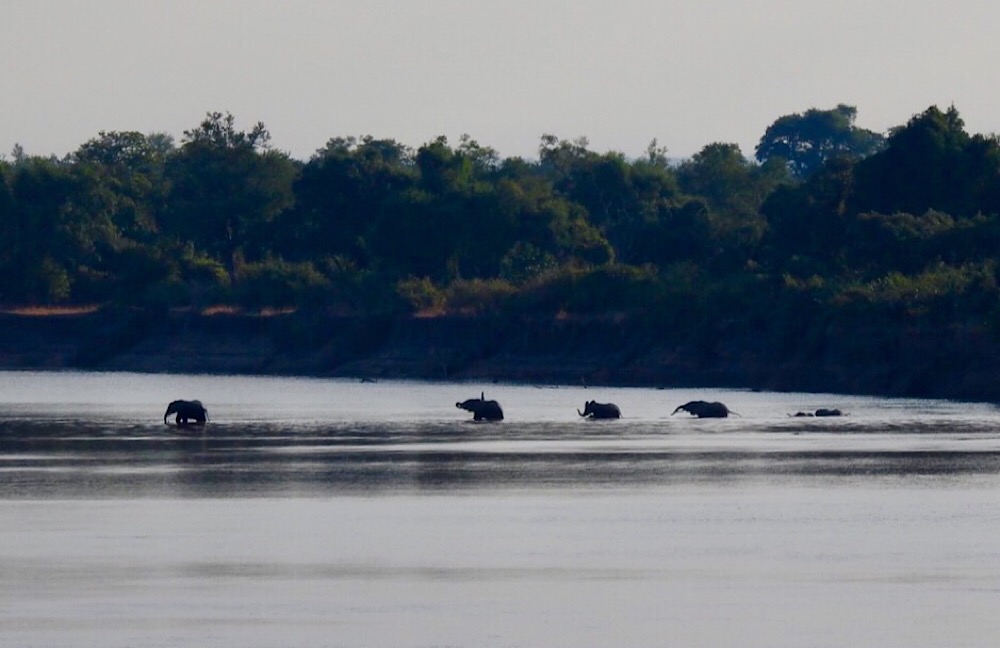
While staying at Croc Valley, we were able to take both a morning and an evening game drive at South Luangwa National Park. The morning game drive began at 6am when we were picked up at our campsite by a guide in an open air 4×4 safari vehicle. This park has large populations of elephants, buffalo, gazelles, water bucks, hippos, giraffes, impalas, zebras, warthogs, hyenas, baboons, crocodiles, and wild African dogs, all of which we saw in the morning.
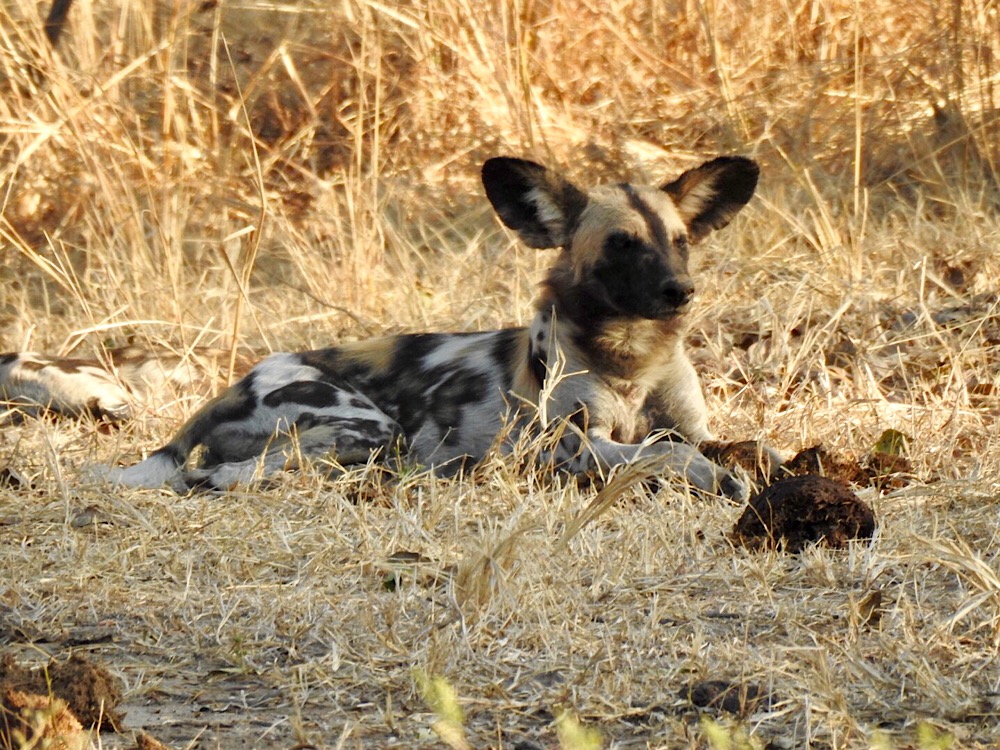
We were able to observe several elephant families at close range, which was a treat. I continue to be excited about every opportunity to watch elephants together in the wild. Being so early in the day and with it almost being winter, it was quite cool during our game drive.
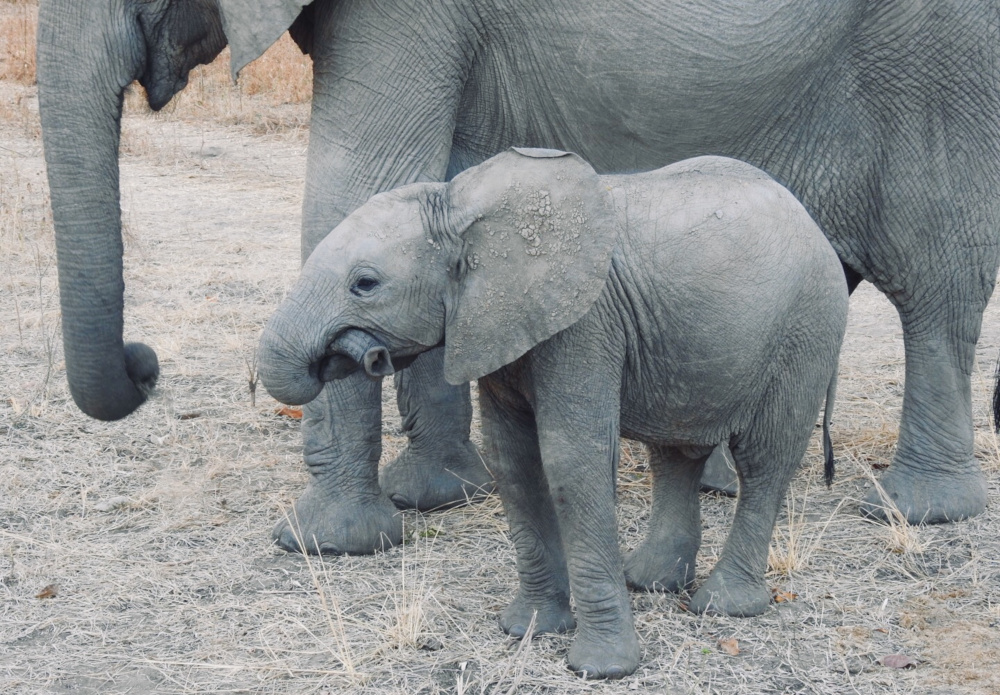
At about the halfway point, our guide pulled off and served us hot tea and biscuits he had brought, which we enjoyed picnic style beside a scenic lagoon with giraffes, gazelles, crocodiles, and hippos all within sight off in the distance.
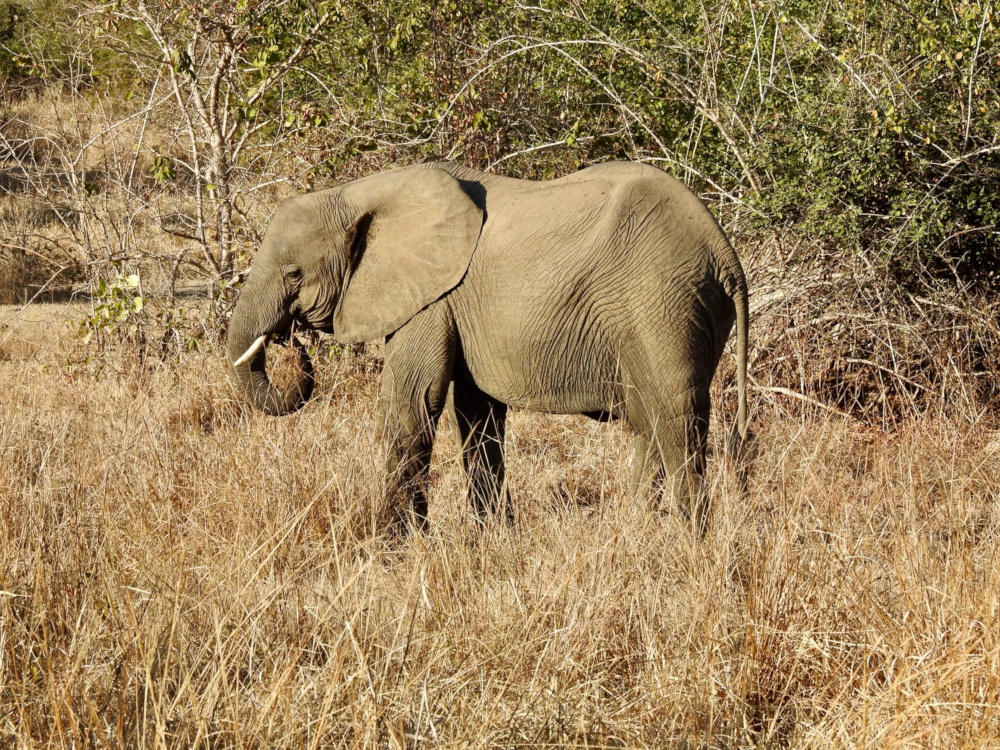
Our evening game drive started at 4pm in the same safari vehicle from that morning. We were driven around South Luangwa National Park some more and saw a pack of about ten wild African dogs and also a group of seven female lions feasting on a water buck they had killed. As you can see from the image below, it was a bloody scene. At sunset, we enjoyed juice and biscuits provided by our driver beside a lagoon in the park.
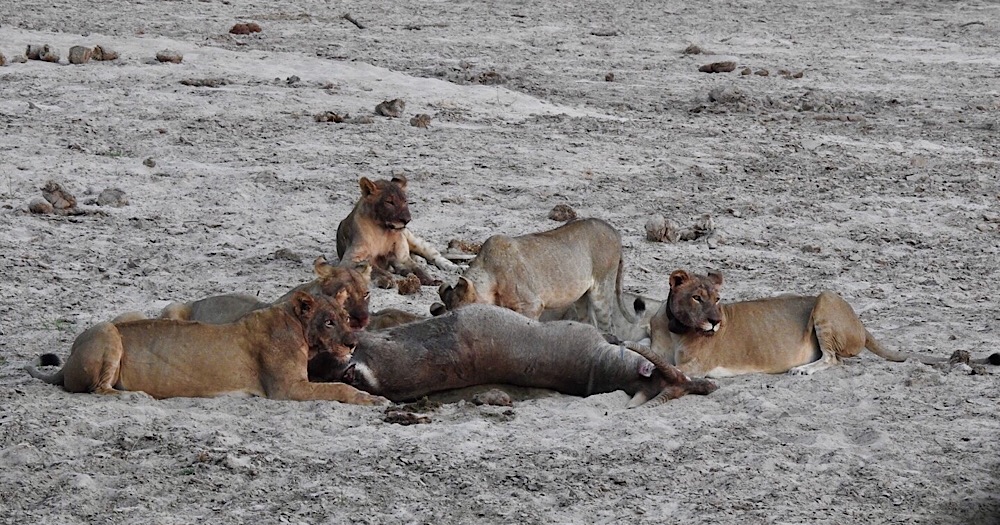
Once the sun went down and we were in complete darkness, our driver’s assistant pulled out a giant spotlight and shined it in sweeping motions from left to right so we could spot eyes looking back at us in the darkness as we drove around the park in the safari vehicle. It was quite chilly and we were unsure if we would actually see much wildlife this way. We were however able to see some hippos up close since they move about at night. We also saw a hyena, a giraffe, and plenty of impalas, buffaloes, and zebras. Toward the end of the game drive we noticed a few other safari vehicles gathered around something so we went to check it out. To our surprise there in the spotlight about 20 feet away was a leopard feeding on some sort of large bird. The leopard stayed in the same spot for a good while and we could see it clearly but it was tough to capture decent photos in the dark. This was our only night game drive experience in Africa and seeing the leopard at night was fantastic and quite lucky.
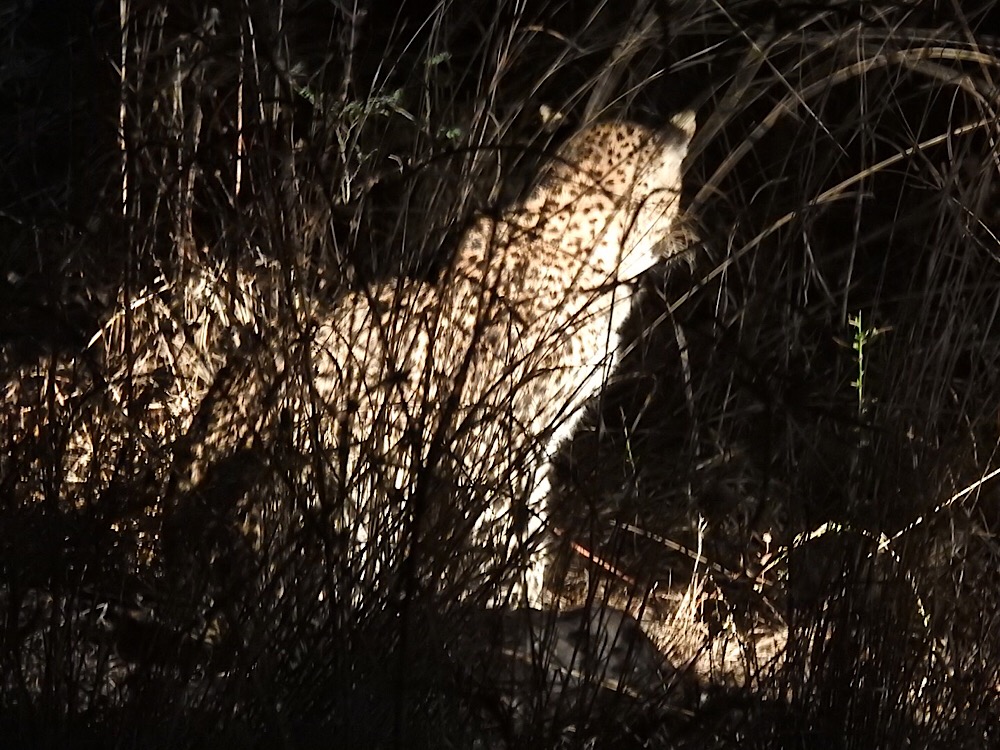
The country of Zambia is protective of their cultural heritage and has strict laws around accepted dress. When worn in public leggings, skimpy tank tops, and skirts or shorts with a hemline above the knee fall into their indecent exposure category. Indecent dress is illegal for men and women and we were told if caught can result in fines and even possibly arrest. We were told they look out for tourists breaking these rules so they can issue penalties. We decided not to test the rules to find out how strictly this is actually enforced.
Plant-based food has not been hard to find in Zambia but most local coffee shops sadly do not seem to carry any non-dairy milk. We have been missing the “Java” coffee shops in Kenya where we could get delicious frozen coffee drinks made with soy milk. At traditional restaurants in Zambia we could usually order “nshima,” which is a thick porridge made from maize, served with stewed greens in a peanut sauce. This meal is cheap, healthy, tasty, and filling and traditionally eaten with your hands (preferably only your right hand). Our tour crew cook Henry has also been making us wonderful meals at camp and he has really gone out of his way to make sure we always have plenty of nutritious food to eat.
We spent our last night in Zambia in Lusaka, the capital of Zambia, at the Eureka Camp Park about 7km from the city center. Lusaka is a very modern city with shopping malls, hotels, restaurants, and a population of about 2 million. This was our last chance to stock up on supplies and take care of banking matters before heading to Zimbabwe in the morning. We were warned that getting cash in local currency in Zimbabwe is practically impossible for foreigners due to their ongoing currency crisis and that merchants often prefer US dollars to their own currency for any kind of payments. Every African country we have visited so far has had its own currency so we usually have to exchange some money at the borders. As we head further south in Africa, the night time temperatures are getting colder but luckily our sleeping bags are keeping us warm at night when we camp. It will be interesting to experience winter in the southern hemisphere for the first time.
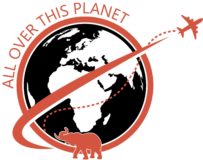
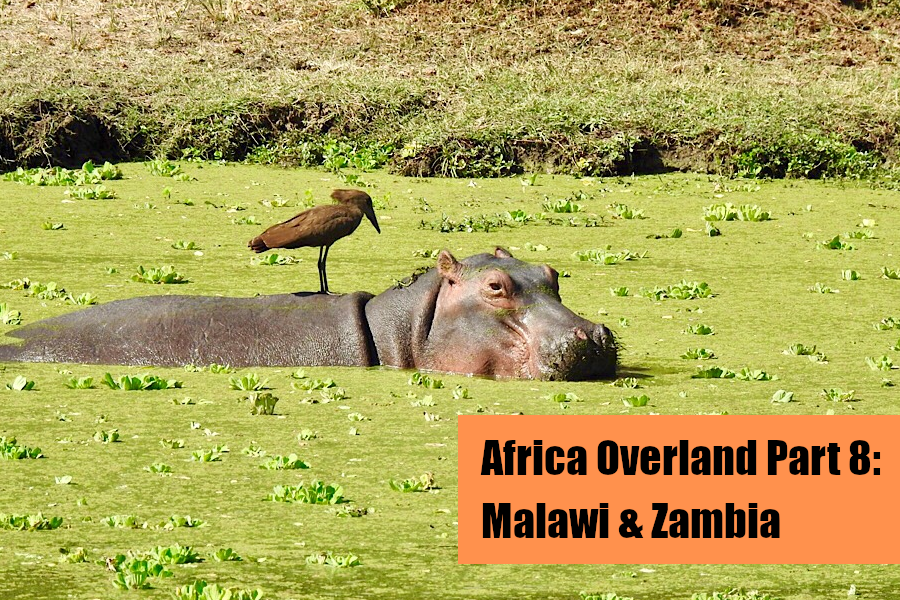
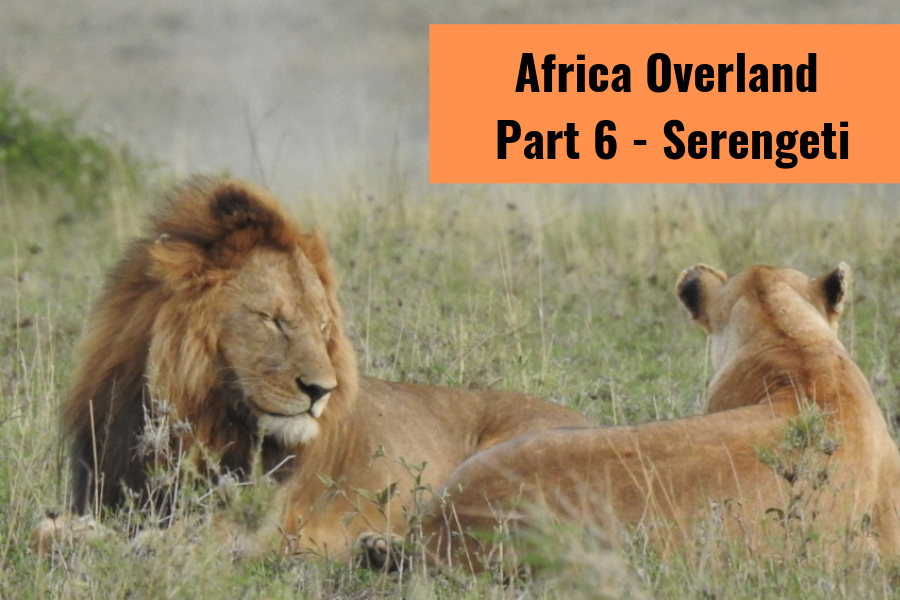
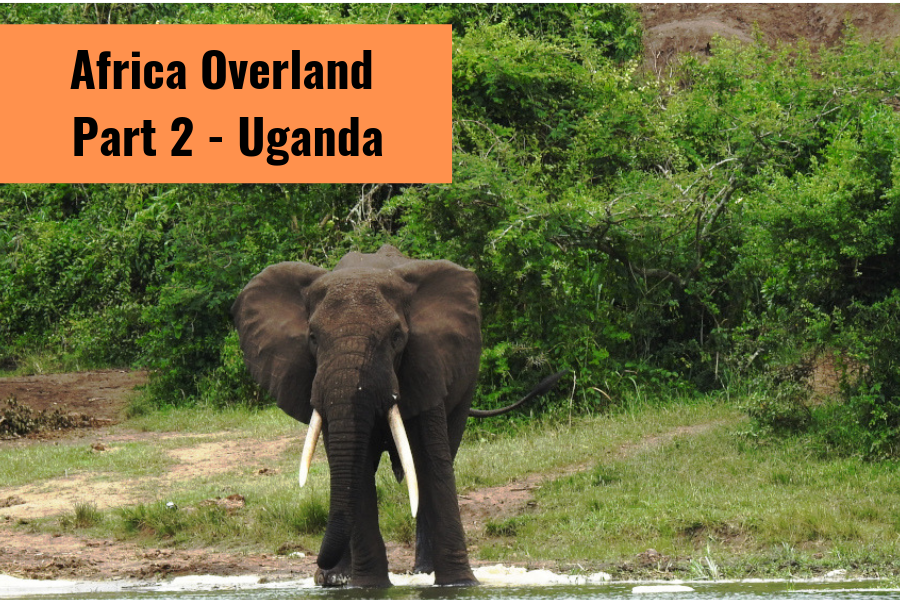
Amazing, absolutely amazing! I love that you are doing this; and that you are sharing your experiences with us here at home. Stay safe and keep up with this adventure!